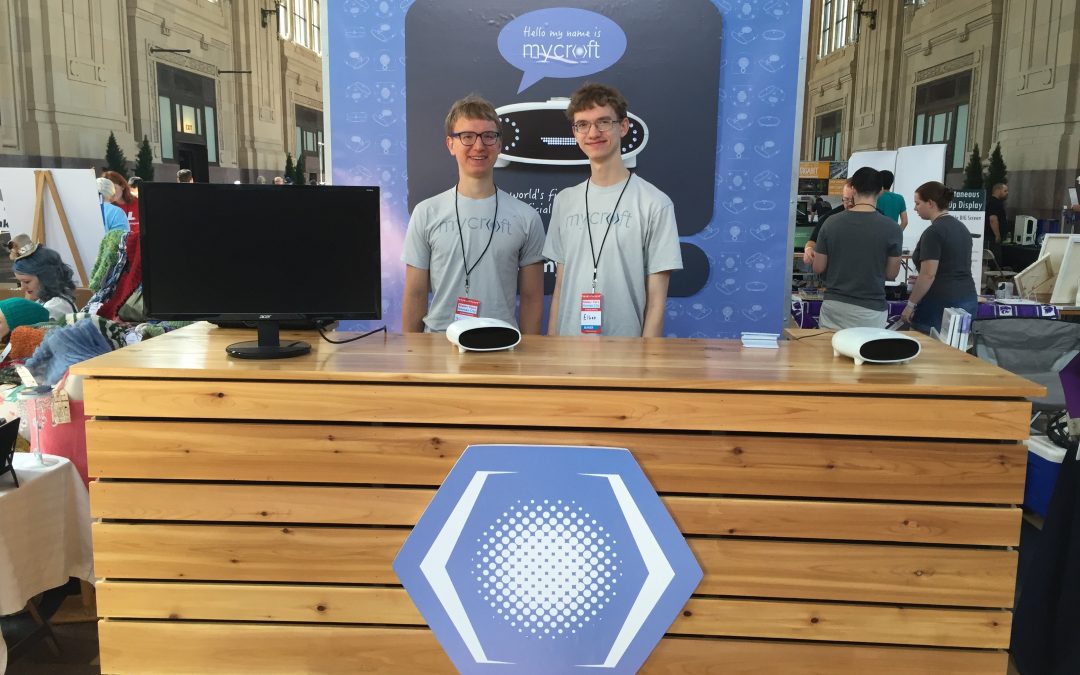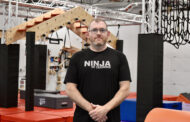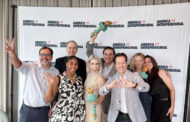Editor’s note: This content is sponsored by LaunchKC but independently produced by Startland News.
After a recent seed round that was topped off with a $50,000 LaunchKC grant, artificial intelligence startup Mycroft is moving from Lawrence to the City of Fountains.
Mycroft — which developed an open-source, artificial intelligence device similar to Amazon Echo — not only is opening its Kansas City headquarters but also a Silicon Valley office to tap the Bay Area’s culture of innovation.
In the coming weeks, the firm will move from Lawrence, Kan., to its new locations in the Crossroads Arts District and in Pacifica, Calif., which is about 10 minutes south of San Francisco. Senior Mycroft leadership will work in California, while engineering operations will remain in Kansas City.
Mycroft CEO Joshua Montgomery said that both cities afford the firm opportunities to grow, including access to investment capital.
“Growing up in Kansas was great, but Kansas City and San Francisco offer us the type of environment necessary to grow a great technology company,” he said in a release. “The Bay Area is the place to be for business development and fundraising. … If you are going to fund and grow a cutting edge artificial intelligence company it is essential to have operations near San Francisco. That is where the venture capital community is and it is where the types of tech companies that we will be working with are headquartered.”
As part of the relocation announcement, Mycroft will also be hiring three new engineers to build out its technology. The move also means that Montgomery and his wife, Kris Adair, are unloading their other business, Wicked Fiber, an Internet service provider in the Lawrence area.
A graduate of the 2016 Sprint Accelerator program, Montgomery previously said that the firm would move to Kansas City if it were able to successfully snag a LaunchKC grant. With that secured, the firm leveraged other LaunchKC perks by opening the office at Lead Bank’s 1801 Main St. facility.
“The LaunchKC funds and office space were instrumental in our decision to move engineering to Kansas City,” Montgomery said in a release. “Without these funds, we’d be hard pressed to both relocate our facilities and grow the business.”
The grant and recent seed round of $335,000 will fuel development of the Mycroft platform. The funding also will help the firm fulfill shipments to backers of its Indiegogo campaign for its first device, the Holmes I. That campaign raised more than $175,000 in funds, making it one of Kansas’ most successful crowdfunding efforts ever.
A device that’s as big as a conventional alarm clock, Mycroft uses natural language processing technology to enable its everyday use in a consumer’s home. Natural language processing incorporates computer science, artificial intelligence and computational linguistics to understand human language as it is spoken. Similar to Apple’s Siri, a Mycroft device learns and adapts to a user’s voice and accounts for imprecisions in speech.
Once a user connects her Mycroft to the internet, she can verbally command the device to do a variety of tasks, such as turn on lights, lock doors, make coffee or engage other Internet-of-Things tech. If a user has a question — such as what’s the forecast in Kansas City today? — Mycroft translates the speech and sends it to at least two artificial intelligence platforms and scours the internet for the best answer.
That natural language processing capability paired with an open-source and open-hardware approach to development is what makes Mycroft powerful. Users around the world are able to develop software or hardware add-ons to Mycroft, which released its source code to allow techies to modify, fix and re-distribute the platform. Developers are now attaching the Mycroft platform to anything from robots to refrigerators.
Founded in 2015, Mycroft now has 11 staff members in Kansas City, Brazil and Canada.




































